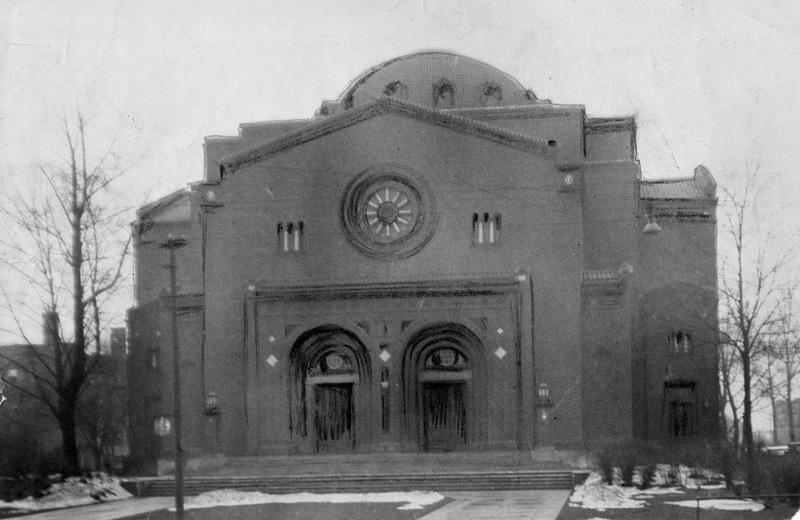Fairmount Temple

The Fairmount Temple in Beachwood was the last home of Anshe Chesed, a Reform congregation of more than 1,500 families, prior to its 2024 merger with Temple Tifereth Israel to form Mishkan Or. Fairmount Temple, bearing the name of the street on which it was located, followed the tradition of Cleveland's original Jewish congregation of German immigrants. Percival Goodman, a New York architect was assisted by Clevelander Sigmund Braverman to design the facility following World War II when congregation members were moving eastward from their downtown neighborhoods. In 1948, 32 acres of land was purchased along Fairmount Boulevard for a new synagogue location. Following a long zoning battle which ended in the Ohio Supreme Court, the City of Beachwood issued a building permit in 1954 to erect the Fairmount Temple. The expansive facility served the congregation's mission of "lifelong learning, worship, social action, and deeds of loving kindness."
Fairmount Temple was the last of four temples providing a home for the congregation since 1842. In 1837, Simon Thorman was the first German from Bavaria of Jewish faith to settle in Cleveland. Gathering fellow Jews, he formed a minyan and initiated the organization of a congregation of worshipers. By 1845, the cornerstone of Cleveland's first Jewish house of worship was laid. It was supported by Leonard Case, a non-Jewish Cleveland philanthropist. The Eagle Street Temple was built and dedicated in 1846 on the site now occupied by Progressive Field. The congregation experienced significant growth and splits during the next forty years before the reformed congregation moved to a new site on Scovill Avenue and Henry Street (near East 25th). Dedicated in 1887, the Scovill Avenue Temple served the congregation until further expansion fostered another move to the Euclid Avenue Temple at East 82nd Street in 1912.
The Anshe Chesed congregation continued to thrive at this location for more than forty years into the mid-20th century. The Euclid Avenue building is the home of eight Tiffany windows. When the congregation moved, however, the windows were deemed too old-fashioned for the newer Temple. Families moving to the eastern suburbs, combined with limited access and parking, prompted the congregation leaders to build a new facility in Cleveland's eastern suburbs. The Euclid Avenue Temple has been occupied by the Liberty Hill Baptist Church since 1956, when it became the first Black church on Euclid Avenue.
Audio
Images





